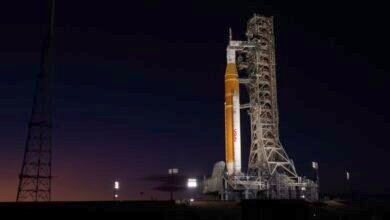U.S. May Lose Second Moon Race, Warns Former NASA Chief

▼ Summary
– The Trump administration proposed ending NASA’s Space Launch System rocket and Orion spacecraft after the Artemis III mission.
– It also sought to cancel the Lunar Gateway space station to focus on direct lunar surface exploration.
– The administration aimed to use lower-cost commercial rockets and redirect funds toward surface activities like a lunar base.
– Congress opposed these changes and added $6.7 billion in funding to continue the SLS, Orion, and Gateway programs.
– Senator Ted Cruz warned against canceling these programs, citing purchased hardware and lack of ready commercial alternatives.
The United States faces a significant risk of falling behind in the new era of lunar exploration, with internal disagreements over strategy threatening to delay its return to the Moon. A former NASA administrator has raised concerns that without a unified and forward-looking approach, the nation could lose what many are calling the second Moon race.
Earlier this year, the White House put forward a proposal aimed at restructuring NASA’s Artemis Program to improve its long-term viability. The plan included phasing out the Space Launch System rocket and Orion spacecraft after the initial crewed landing mission, Artemis III. In addition, the administration recommended canceling the Lunar Gateway, a planned orbital outpost, to shift focus toward what it termed “direct-to-surface” exploration. The rationale emphasized using more affordable commercial launch vehicles and concentrating the agency’s budget on establishing a permanent presence on the lunar surface.
This proposed shift sought to reallocate funding from programs like the Gateway, which received $854 million in the 2024 budget, toward developing a sustainable lunar base. Proponents argued that this would make the Artemis missions more financially sustainable and accelerate the timeline for a lasting human presence on the Moon.
However, Congress has pushed back strongly against these changes. Legislation introduced this spring, influenced by Sen. Ted Cruz of Texas, added $6.7 billion in funding specifically to continue production of the SLS and Orion spacecraft and to advance construction of the Lunar Gateway. During a recent hearing on NASA’s lunar ambitions and competition with China, Cruz emphasized that canceling these programs would be unwise, especially since much of the hardware has already been acquired. He insisted that the administration must align its spending with congressional directives to avoid undermining years of investment and planning.
This disagreement highlights a broader tension between executive and legislative branches over the direction of U.S. space policy, raising questions about whether the nation can maintain its competitive edge as other countries, notably China, accelerate their own lunar programs.
(Source: Ars Technica)





